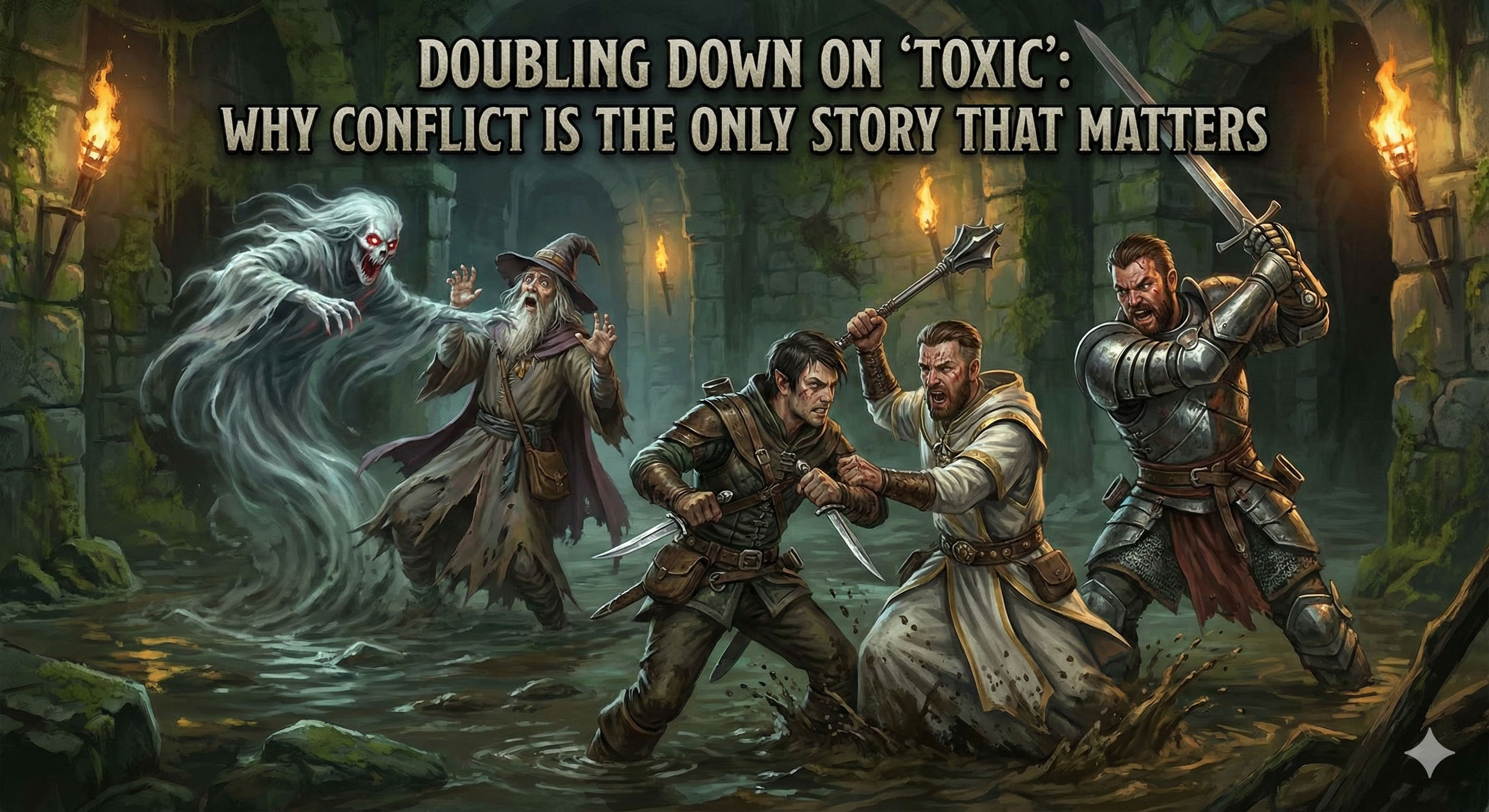
By Racon
When I started developing PsychScape, I knew I didn’t want to fall into the trap of making a rule for everything. Why? Because overloading games with rules doesn’t just bog down the fun—it outright insults the intelligence of players and Legend Masters alike.
Think about it. The more rigid rules you impose, the more you’re dictating how players should think, act, and resolve conflicts. It’s like saying, “You’re not clever enough to figure this out, so here’s a detailed flowchart.” Personally, I think that’s garbage. A good game should trust its players to embrace creative problem-solving without requiring a dozen rolls and a rulebook appendix to do so.
Take D&D 5e, for instance—great system, sure, but it’s drowning in supplements, add-ons, and tables for everything. Encumbrance, for example. Does anyone actually enjoy calculating how many pounds of loot their character is carrying? Of course you can’t haul 2,000 gold coins and a full arsenal of weapons. But do you really need a spreadsheet to figure that out?
History gives us a prime example. During the siege of Tenochtitlán, the Spanish conquistadors had to retreat after initially being routed. Instead of prioritizing survival, they tried to haul as much loot as possible: gold, jewels, you name it. They stuffed treasures into their armor, loaded carts to the brim, and fought their way out of the city. What happened? A lot of them drowned in the lake. The weight dragged them down, and they lost most of the loot anyway. If they’d waited until the city fell for good (which they eventually achieved), the treasure would have still been there.
The lesson? It’s obvious—you don’t need a rule to tell you carrying a hoard of gold while trying to escape a battle is a terrible idea. Players can figure this stuff out, and if they can’t, let them suffer the consequences.
Here’s another example of over-regulation: combat. In some games, combat rules are so convoluted they make you feel like you’re reenacting the Battle of Gettysburg. As a long-time tabletop wargamer, trust me—I’ve been there. Nothing kills the flow of a good story like spending half the night resolving a single encounter.
Look, I’m not saying combat shouldn’t have rules. But when your group spends hours arguing over modifiers, terrain effects, and whether someone gets advantage on their reaction, you’ve lost the plot—literally. If I wanted to experience the intricacies of real-world warfare, I’d join the French Foreign Legion.
RPGs aren’t meant to be bogged down with endless details. They’re about telling a story, sharing a world, and making memories with friends. And let’s be real: if your adventure isn’t compelling enough to keep people engaged without nitpicking rules, it’s time to rethink your game, not add more tables.
One final thing: shopping in RPGs. Please, for the love of everything sacred, stop spending entire sessions in the fantasy equivalent of a Walmart. If your players want to gear up, let them make a list, subtract the gold, and move on. Do we really need to burn a precious Saturday night rolling to see if the blacksmith has enough daggers in stock? That’s what Instacart is for!
At the end of the day, the best RPGs don’t need a rule for everything. They need trust. Trust your players to think critically. Trust your Legend Masters to adapt. Trust your story to move people without unnecessary details.
Keep your adventures moving. Keep your players moving. Keep your stories moving. If you can do that, you don’t need a thousand rules—you just need the courage to let the dice roll.

